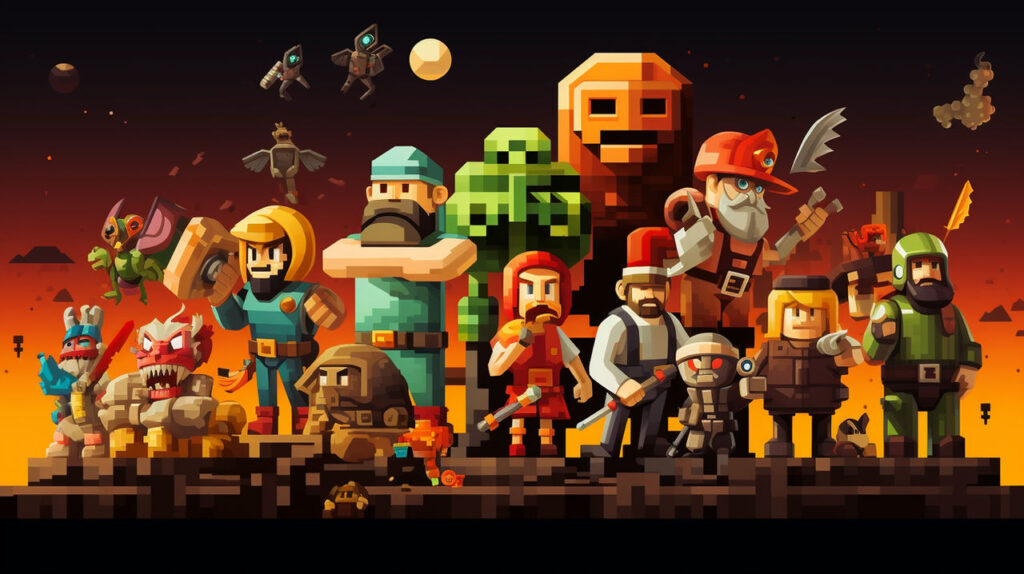
Audience
- Sentiment: disappointed
- Political Group: Not directly aligned
- Age Group: 25-45
- Gender: both
Overview
- EA’s Legacy Collection aimed to evoke nostalgia but fell short due to technical issues and lack of modern features.
- Players expressed frustration over missing elements like achievements and Steam Cloud support.
- The article suggests a broader trend in gaming prioritizing multiplayer experiences over rich single-player narratives.
EA’s Legacy Collection: A Nostalgic Visit That Missed the Mark
When I first heard about EA’s recent release titled the “Legacy Collection,” I felt a spark of excitement. EA, or Electronic Arts, has been a powerhouse in the gaming world for decades, and the thought of revisiting classic games was thrilling. Games that many of us grew up playing and loved could finally get a modern touch. Alas! My enthusiasm quickly faded into a sense of disappointment as players started sharing their experiences. The launch of the Legacy Collection turned out to be more of a letdown than a nostalgic trip down memory lane. Let’s take a closer look at what went wrong and why this reflects a troubling trend in the gaming industry.
A Walk Down Memory Lane
Before we dive into the disappointments of the Legacy Collection, let’s take a moment to reflect on why these classic games meant so much to us. Remember the days when you could lose yourself in a single-player game for hours on end? Maybe it was a legendary adventure game that made you feel like a hero, or perhaps it was a strategic title that required hours of planning and execution. Let’s not forget the joy of finally conquering a challenging level or discovering a hidden easter egg.
Nostalgia has a powerful grip on us. It wraps us in a warm, fuzzy blanket of memories and often glues us to our screens, longing for the days when gaming was just about fun and immersion. Classic video games are cherished not just for the gameplay but for the memories they bring back—the friends we played with, the late-night battles, and the sheer joy of escaping reality for a while.
The Legacy Collection: Exciting Concept, Flawed Execution
With the Legacy Collection, EA aimed to capture that nostalgia, but what fans got instead was a disappointing re-release of old titles. Players quickly pointed out a slew of problems, ranging from technical issues that made the games difficult to play, to a lack of modern features that many gamers have come to expect in new releases.
For instance, achievements—the little rewards that pop up when you accomplish something in a game—are a huge part of the modern gaming experience. They add an extra layer of challenge and excitement that makes players want to keep coming back to the game. Unfortunately, the Legacy Collection did not include this feature. Additionally, a lot of gamers utilize Steam Cloud to save their game progress across different devices. Without this feature, many were left frustrated, feeling that their gaming experience had not been respected or enhanced.
Many fans were expecting EA to give a thoughtful face-lift to these classics, much like what other developers have done successfully in the past. Instead, they felt that the effort was minimal at best and rushed at worst. This raises an important question: Why would such an acclaimed company settle for mediocrity when they have the resources and talent to create a truly engaging experience?
A Larger Trend in Gaming
The struggles of EA with the Legacy Collection are part of a larger trend in the gaming industry. More and more, we see companies focusing on multiplayer and service-driven models. These models often prioritize that ongoing revenue stream instead of crafting fulfilling and rich single-player experiences.
It’s no secret that multiplayer games can bring in a lot of cash through microtransactions and subscriber models. This is where the focus often lies; game developers create worlds meant for multiplayer interactions, leaving behind the lone player experience. But here’s the catch: many gamers, including myself, still crave those immersive single-player stories. We want games that take us on a journey, develop characters we can relate to, and present challenges that make us think.
EA is not alone in this shift. Many gaming companies have opted for the path of least resistance—like churning out quick remasters or relying heavily on multiplayer modes—rather than taking the time to develop unique, single-player narratives. This shift has left a significant chunk of the gaming community feeling abandoned, wondering where the next great single-player adventure will come from.
Indie Developers to the Rescue?
As we look at the current landscape of gaming, one potential savior has emerged: indie developers. These are smaller teams that often operate with passion rather than the massive budgets of larger companies. They can dedicate their time and creativity to crafting experiences that resonate with gamers on a more profound level. Whether it’s a captivating narrative or a unique play style, indie games often seem to understand what players want.
Games like “Celeste” and “Hollow Knight” serve as critical reminders that great storytelling and immersive gameplay can still thrive outside the AAA gaming industry’s corporate machine. These titles often focus on quality over quantity, doing more with less. They feature well-thought-out narratives, compelling characters, and gameplay that balances challenge and fun.
The impact of these indie games can’t be overstated. They offer fresh, engaging experiences that harken back to the single-player joy many are missing in the face of large corporate releases that feel more like cash grabs. So, as EA struggles with its Legacy Collection, perhaps it’s indie developers who will carry the torch for quality single-player gaming going forward.
Conclusion: Longing for Better
The Legacy Collection was a golden opportunity for EA to reconnect with its fanbase. The chance to breathe new life into beloved classics became a missed opportunity to provide gamers with an experience that honors the original titles while incorporating features that make them appealing to modern audiences.
As gamers, we deserve better. We deserve gaming experiences that not only tap into our fond memories but also provide new stories and challenges. A journey that ignites the same passion we felt when playing those classic games. Instead of quick re-releases that feel undercooked, we should urge developers to pour their hearts into their projects and deliver the rich single-player experiences that so many of us cherish.
So, as the dust settles on the Legacy Collection, I want to ask you: What are some of your favorite classic games, and how do you think they could be reimagined for modern audiences? Let’s get the conversation going in the comments below! Your thoughts could spark a discussion that brings new ideas to life!






